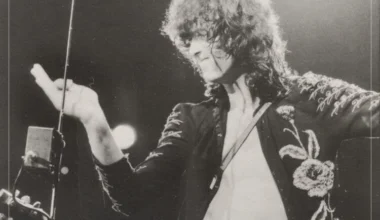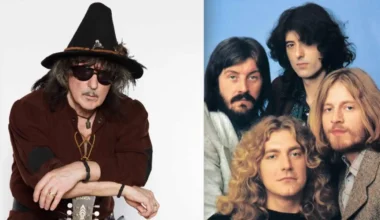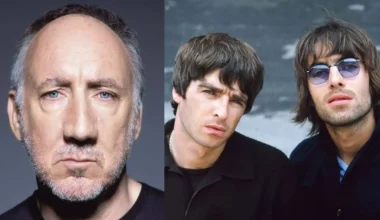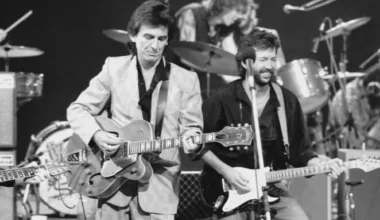Controversy has followed Guns N’ Roses like a sinister shadow from the very start. Their first tour was an utter disaster. They might have begun their life on the road with an appetite for destruction, but all that destruction amounted to was a broken-down tour van, abandoned instruments, and decimated bank accounts.
After conking out en route to their first show, they had to ditch the bulk of their equipment, accept a sketchy hitchhiking ride, and deal with a venue paying them only half of their promised fee. From that moment on, the band developed a fierce us against the world attitude. “We want people to realise, man, just play whatever the f*ck you want to play, not what someone else thinks you should play, so that’s what we’ve done,” Axl Rose explained.
However, they’d soon deploy this in a manner that can only be described as despicable. There are some things that you can’t play for good reason. They would quickly learn that following the success of Appetite for Destruction. After the hardships they had faced in their amateur days, they were determined to ensure that their newfound fame wasn’t fleeting. So, they decided to launch an EP hot on the heels of their debut.
In a rush, they arrived at the horrendously offensive single ‘One in a Million’. They would live to regret it in a roundabout way, as Slash stated, “I don’t regret doing ‘One in a Million’, I just regret what we’ve been through because of it and the way people have perceived our personal feelings.” For the rest of the world, the band’s personal feelings were not the primary concern when a group who had attracted a legion of young fans were releasing a track that contained racial slurs, homophobic language and echoed far-right sentiments.
The EP went on to sell around 5million copies. In a sense, the unfortunate commercial success disproves a point that Rose looked to make clear amid the controversy it attracted: “I don’t like being told what I can and what I can’t say.” He had already made that much clear with the obscenities in the track, and when he was asked to explain them, he initially went down a defensive route, claiming a right to be inflammatory.
Rose said, “We don’t just do something to get the controversy.” But they also pre-empted that controversy with a mock tabloid EP cover that contained the line, “This song is very simple and extremely generic or generalised, my apologies to those who may take offense.” The latter sentiment might have appeared hollow on the whole, but the band certainly quickly backtracked away from it in a live setting.
The group played ‘One in a Million’ live for the first time in October 1987, they’d play it again in January 1988, and then they’d retire it for good. Both performances came before its physical release when the lyrics could be properly scrutinised. It has never been played again, and has been entirely retired from their set. It was also subsequently removed from the reissue of the Lies EP.
However, largely, the stance of the band has gone unexplained. In 2019, Duff McKagan might have commented, “So many people have misinterpreted that song that we removed it,” but it is not quite clear what other interpretations are possible for such an unambiguously offensive song.






